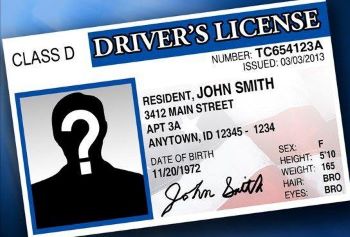 Democratic and Republican legislators are working to fix loopholes in a law requiring the Department of Correction to issue state identification cards or driver’s licenses to people being released from prisons.
Democratic and Republican legislators are working to fix loopholes in a law requiring the Department of Correction to issue state identification cards or driver’s licenses to people being released from prisons.
Under the law passed in 2017, the department is mandated to provide state IDs or driver’s licenses to people returning home from prison — as long as the person requests the identification, qualifies for it and will pay the associated fees.
But some people are still leaving prison without the forms of identification, which has made activities like opening a bank account and applying for jobs an uphill battle for them. The situation has caused frustration among members of the Judiciary Committee, some of whom thought the DOC began addressing the matter six years ago.
“They are not meeting the law,” Sen. Gary Winfield, D-New Haven, who is co-chair of the judiciary and co-sponsor of the 2017 legislation, told the CT Mirror on Thursday. “I don’t think they’re meeting the law, and if anybody would know whether they’re meeting the law, it would be me.”
Winfield has requested that the DOC provide data on people who have been issued ID cards or driver’s licenses, while lawmakers are backing new legislation — House bill 6875 — that would change the previous law’s requirement that people request identification from the DOC.
If passed, the department would pay any fees associated with getting the identification, unless a person indicates in writing they don’t want a card or license.
The proposed law would also expedite the time in which the DOC would begin preparing the necessary documents for a person to get identification and require the department to provide the identification by the time that person gets released.
Sen. John Kissel, R-Enfield and a ranking member of the judiciary, told DOC Commissioner Angel Quiros on Wednesday, during a public hearing for the legislation, that he doesn’t understand why the agency doesn’t have an internal process already to address identification.
“On the IDs, I don’t get it,” Kissel said. “Clearly the undermining of reintegration with society and becoming law-abiding and taxpaying citizens, just that little thing is a real impediment. … It just doesn’t seem like rocket science.”
Rep. Craig Fishbein, R-Wallingford and the other judiciary ranking member, also questioned how the agency has handled IDs for incarcerated people. He spoke about how much the world has changed over the last quarter century. Sending people who were incarcerated for longer periods of time back into the world without proper identification seems like a “big hurdle,” he said.
“It’s basically, from what I’m hearing, go figure it out,” Fishbein, who co-sponsored the new bill, said.
Quiros told the lawmakers that he supports the legislation. He also said the department does have an internal process for processing the IDs, which the current law says comes in collaboration with the Department of Motor Vehicles.
“We do have reentry counselors that work with these individuals,” he said. “For the calendar year 2022, there were 4,800 pieces of identification that were secured by the Department of Correction. Some were birth certificates, others were social security cards. Others were driver’s licenses … others were non-driver’s licenses.”
However, the current law cites the need for ID cards and driver’s licenses upon request from those who are incarcerated, not the other forms of identification referenced by Quiros.
The exchange between legislators and the DOC comes as community organizers have continued calling on the state to invest in communities directly affected by mass incarceration.
Connecticut has closed three prison facilities in the last two years, saving the state more than $26 million in annual operating costs. Thus far, the governor’s administration hasn’t specified where it wants to prioritize the money saved from the closures.
“People reentering the community have to navigate numerous challenges in the process of reintegrating into society, attaining housing, reintegrating with their families and communities, finding employment and just meeting basic needs,” said Benjamin Howell, a professor at the Yale School of Medicine, who testified Wednesday. “Not surprisingly, reentry is associated with high rates of unemployment, poverty, homelessness and social isolation.”
A 2021 study in Connecticut found that 1 in 5 people who used homeless shelters had been released from prison in the past three years. And out of the more than 8,000 formerly incarcerated people who utilized shelters, 35% were Black, despite being only around 13% of the state population.
Howell described state issued identification as a “crucial tool” needed for successful reentry. During the hearing, several formerly incarcerated people testified about their troubles having to navigate life without an ID card or driver’s license.
